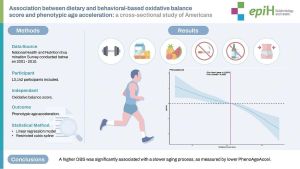Rachel Reeves, the Chancellor of the Exchequer, has recently unveiled bold initiatives aimed at revitalizing the UK economy. With plans to intensify the government's focus on infrastructure and financial flexibility, her announcements are rooted deeply within the current economic challenges facing the nation.
During her speech on January 29, 2025, at Siemens Healthineers in Oxfordshire, Reeves emphasized the government's commitment to explore privately financing key projects, most prominently the Lower Thames Crossing. This proposed new road is intended to connect Kent and Essex through a tunnel under the River Thames, and aims to almost double road capacity east of London. She stated, “We are not wasting any time, and we will move forward with the next stages of the Industrial Strategy.”
National Highways, which oversees road projects, perceives the Lower Thames Crossing as not just infrastructure but also as a catalyst for economic activity. According to them, it will significantly reduce congestion and offer millions of residents greater flexibility concerning their work and lifestyle choices. Reeves echoed these sentiments, noting, “This includes the Lower Thames Crossing, which will improve connectivity at Port of Tilbury and Dover, alleviating severe congestion as goods destined for export come from the North, and the Midlands and across the country.”
Her remarks come as the logistics sector voices strenuous support for this initiative. Andrew Baxter, CEO of logistics firm Europa Worldwide Group, recently pointed out the economic toll caused by congestion at the existing Dartford Crossing. He estimated losses up to £200 million annually due to delays, underscoring the pressing need for new trade routes to facilitate smoother operations. Baxter noted, “For British businesses, who have already had to contend with changes in how goods move across borders post-Brexit, the Lower Thames Crossing promises a significant lifeline.”
While promoting the Lower Thames Crossing, Reeves also announced her backing for the expansion of Heathrow Airport, including the construction of a potential third runway. This initiative is projected to create over 100,000 jobs; nevertheless, it has ignited considerable debate over its environmental impact. Critics argue such expansion contradicts measures to combat climate change, which is at odds with Labour's public commitments. Cass Witcombe, among others, expressed concern: “Flying is one of the most egregious forms of pollution, and we should be increasing tax on flights and discouraging it as a mode of transport.”
This environmental backlash highlights the balancing act Reeves faces as she seeks to stimulate economic growth without compromising public commitments to sustainability. The dynamics surrounding Heathrow underscored the skepticism about reconciling immediate job creation with long-term climate targets, reflecting broader anxieties about infrastructure's role amid environmental degradation.
Adding to her economic approach, Reeves also plans significant reforms to unlocking pension funds. Her initiative will allow up to £60 billion from defined benefit schemes to be released for investment purposes. This follows new findings indicating many pension plans are well-funded due to rising interest rates. She is restructuring existing regulations surrounding access to funds, announcing, “We will grant new flexibilities to enable well-funded schemes to release surplus funds where it is safe to do so.”
Experts, such as David Wrigley from pension consultants LCP, support Reeves' initiative, seeing it as beneficial for both the economy and the pension holders. Wrigley noted, “This has the potential to really increase the appeal of running-on pension schemes with the potential for sooner, and larger, access to surpluses.” This reform is seen as a means to tackle the stagnation within the economy by channeling dormant pension resources toward growth-oriented projects.
On the other hand, suggestions for spending cuts to improve economic viability were recently put forth. One controversial opinion suggested reducing benefits by 25% as a mechanism to encourage employment—a perspective shared with mixed reactions. Reeves must navigate how such proposals fit within her vision for economic growth and social responsibility.
While Herculean efforts to stimulate economic growth emerge, the conversation highlights the mixed responses on prioritizing connectivity against the backdrop of climate exigencies. For Reeves, the battle lies not only within proposing projects but ensuring they resonate positively with the public. The initial shockwaves of her ambitious plans resonate broadly, as opinions confirm the necessity for cohesive, inclusive growth strategies.
Looking forward, the Chancellor's actions reflect intense scrutiny from diverse stakeholders. Whether her economic vision aligns with the public demands for equitable growth, environmental reform, and infrastructure development will shape the political and economic landscapes. The pivotal question remains: will Rachel Reeves successfully steer the UK economy toward recovery through her devised initiatives?



